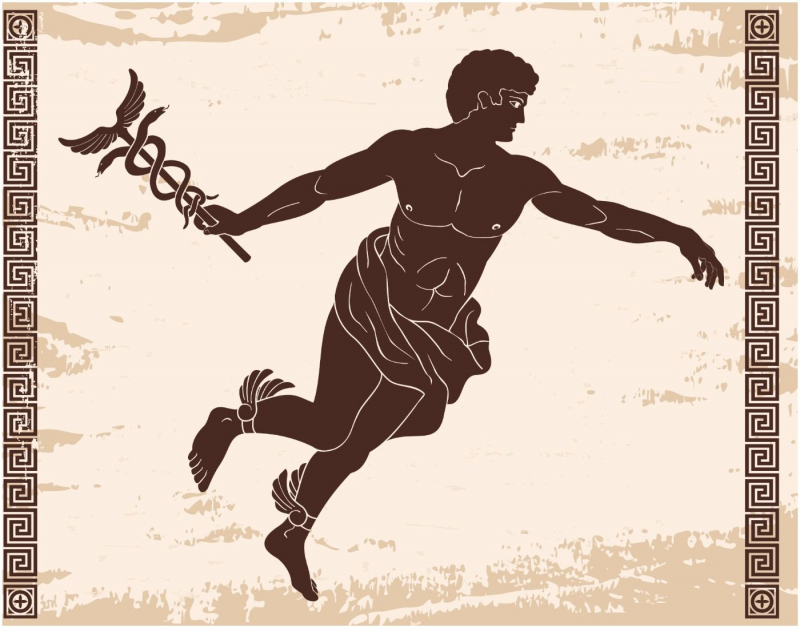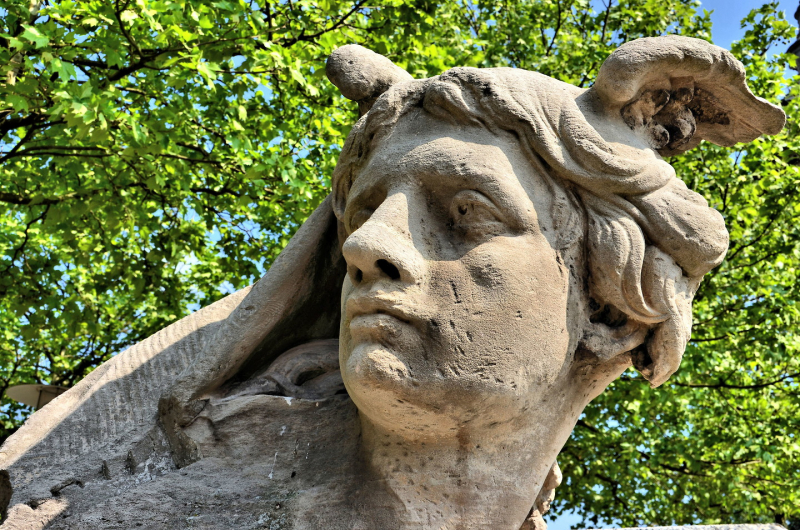Hermes - The messenger god
Hermes, the eldest son of Zeus, was chosen to be the gods' messenger because of his quickness and dependability. Hermes' winged shoes allowed him to soar and move swiftly. Travelers and traders were protected by Hermes. He is credited with developing gymnastics and boxing. He is also the deity of highways, livestock, trade, and thieves in addition to being a divine prankster. He stole Apollo's livestock on his first day of life and created the lyre as a baby.
The majority of academics believe that the Greek term herma, which meaning "a stack of stones" or "cairn," is where Hermes' name originates. In the ancient world, cairns were frequently seen as border or path markers.
Hermes was represented by ancient painters as a wise, bearded figure. Later on, nevertheless, he was shown as an athletically built naked young man with the four distinguishing features of a purse, a herald's wand (kerykeion), a broad-brimmed hat (petasos), and winged sandals (talaria). Hermes' staff, which had two similar serpents entwined around it and had small wings, had the ability to rouse individuals from slumber or put them to sleep. Hermes' wand is commonly mistakenly employed as a symbol of medicine since it is strikingly similar to and easily confused with the Rod of Asclepius.
Some stories claim that Hermes was the father of speech as well as a god's messenger. He is frequently linked to oratory or interpretation as a result. The science of interpretation is currently known as hermeneutics, from the Greek word for interpreter, hermeneus. Only Hermes, an Olympian, was able to transport the deceased's souls to Hades by bridging the gap between the living and the dead. He eventually earned the titles "the conductor" or "the leader of spirits." He was also referred to as "Argus-slayer," "shepherd of mankind," "trickster," and "patron of travelers and thieves."








